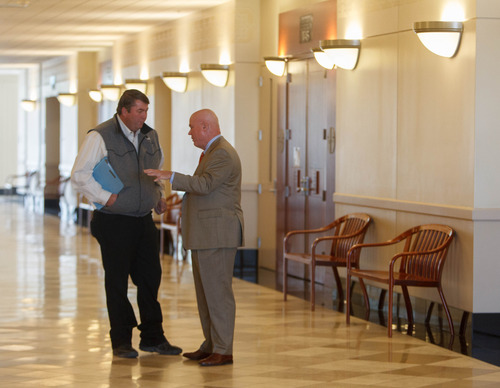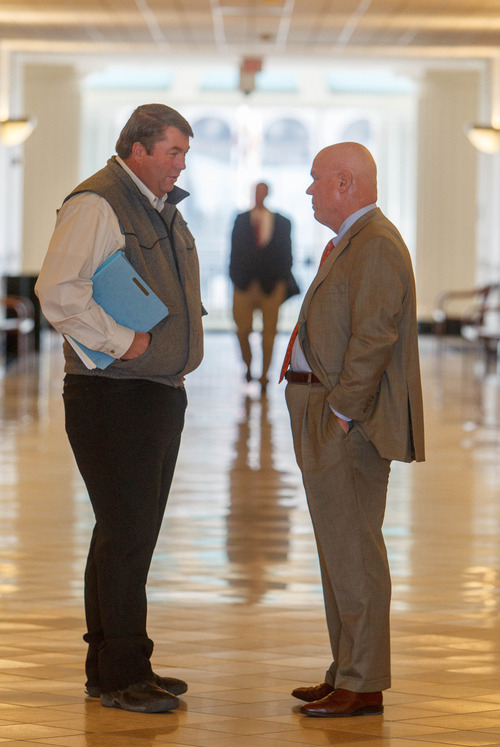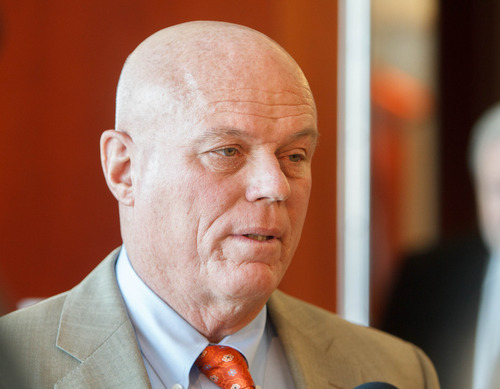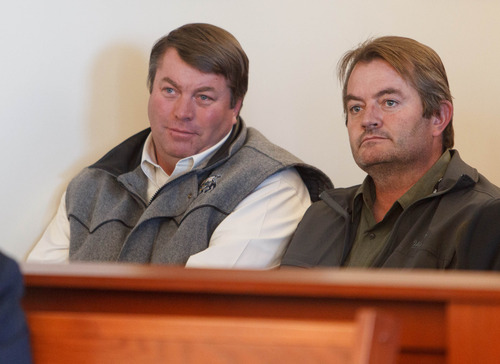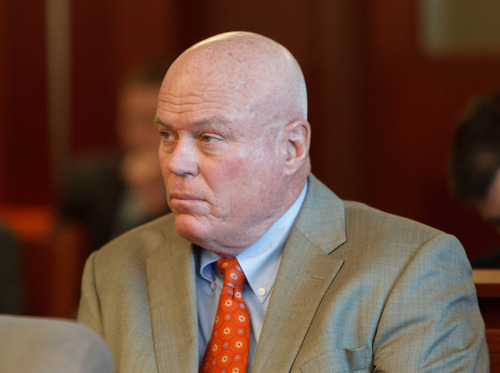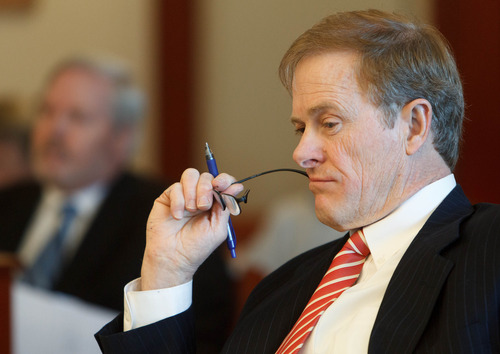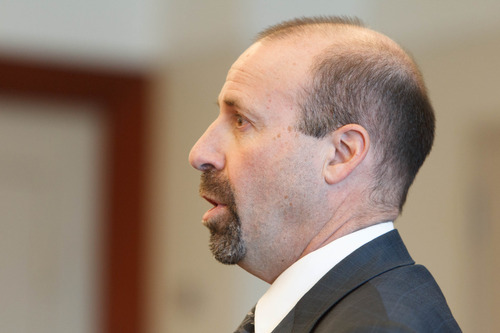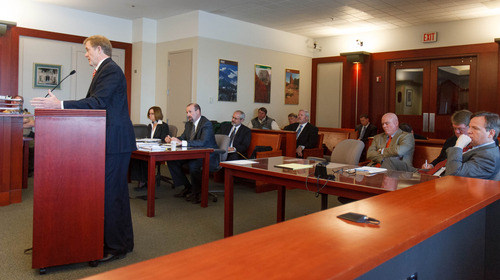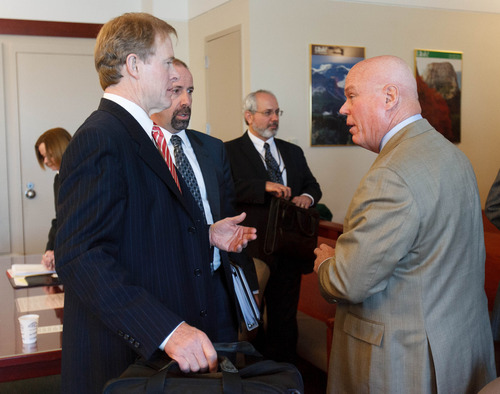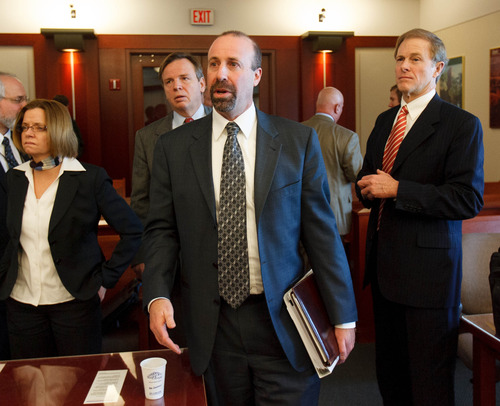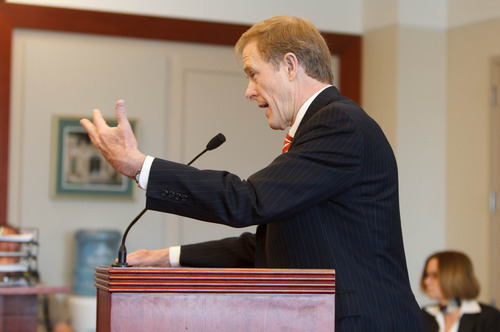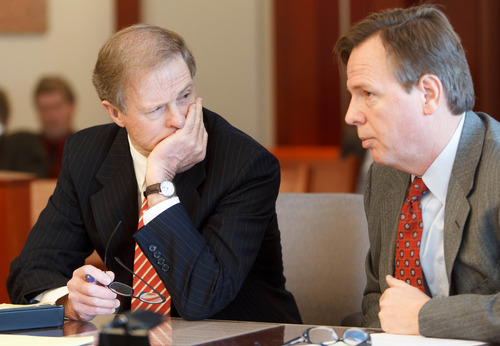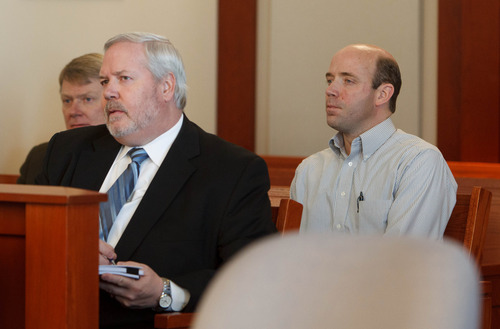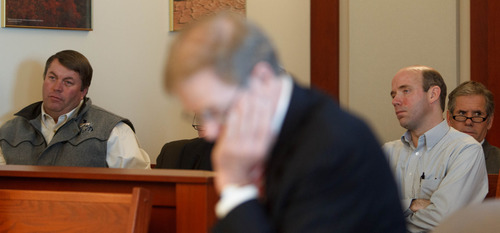This is an archived article that was published on sltrib.com in 2013, and information in the article may be outdated. It is provided only for personal research purposes and may not be reprinted.
A complex case involving millions of dollars of land and other assets in Utah and Arizona polygamous communities inched toward resolution Friday with all sides appearing to favor returning control of the trust to the towns' residents.
The sides also emphasized no commitments had been made and other options were on the table. The development was announcement at a hearing Friday morning before 3rd District Judge Denise Lindberg, who has overseen the United Effort Plan case since 2005.
Lindberg scheduled a new hearing for March 5. At that time attorneys will present a new proposal. Lindberg will have the option of accepting, rejecting or modifying the proposal, after which it will be taken to the Utah Legislature.
The UEP is the trust that holds an estimated $110 million in land, businesses, homes and other assets in the twin towns of Hildale, Utah, and Colorado City, Ariz. It was established to benefit members of the Fundamentalist Church of Jesus Christ of Latter-Day Saints but was taken over by the state for what Lindberg described Friday as "issues related to the management of the trust, or the mismanagement of the trust."
Though the case has turned into something of a quagmire for the state — dragging on for years longer than expected — Friday's announcement was the result of a Jan. 24 meeting. The meeting was attended by representatives from the attorney general's offices of Utah and Arizona, as well as representatives from Bruce Wisan's office, an accountant appointed by the state to serve as the fiduciary overseeing the trust.
Assistant Attorney General David Wolf described the Jan. 24 meeting as "very productive" and led his office to produce a more-than 30 page document exploring exit strategies. Wolf added that the document is still just a draft, but it does explore the possibility of appointing new trustees to oversee the UEP. If some form of the plan was ever implemented, that would mean those trustees would control the UEP assets.
However, Wisan's attorneys Friday presented a simpler, four-point plan:
• Develop an exit strategy for the state that involves appointing trustees to oversee the UEP.
• The fiduciary agrees not to seek more money beyond the $5.7 million that is already owed.
• The fiduciary also agrees not to seek interest on the $5.7 million.
• The trust would give the state a lien on the UEP assets.
The board of trustees idea figures to encounter opposition from some former FLDS members who have said they prefer the UEP be dissolved and its assets distributed to longtime residents and people who helped build homes and businesses in the community. Lawyers for the state also have raised the possibility of auctioning the assets.
Lindberg expressed optimism that the state would fund the case but also suggested something of a middle ground between Wolf's detailed plan and Wisan's four points.
Lindberg also pointed out that the "devil is in the details" when it comes to appointing trustees to oversee the UEP. Lindberg was referencing the complicated history of the case, in which people with varying relationships to the FLDS — some members, some former members, and some in between — have asserted a claim on UEP assets.
Roger Hoole, who also attended Friday's hearing and represents a number of former FLDS members, stressed that the state needs to pay Wisan and not doing so jeopardize the trust's ability to operate. Failure to pay could also subject the state to future litigation.
"If the trust could not be properly administered the result for the state of utah would be very unfortunate," he said. "I think we may lose an opportunity if we don't get some funding to the special fiduciary."
Hoole also explained that his clients want people involved in the case to get their homes and reiterated his belief that UEP assets should be distributed rather than turned over to community members.
Willie Jessop, a former spokesman for Warren Jeffs who is no longer in the sect, praised Linberg after the hearing for trying to find a "delicate balance" that meets the needs of everyone involved in the case. Jessop said he favors giving control of the trust to community members but that any future trustees shouldn't be loyal to Jeffs because they won't put the interests of the community first. He also said he hopes Lindberg abandons any efforts to appoint board members.
"It's got to either have people who are there to protect the people or there to protect Warren Jeffs," Jessop said. "The judge has got to recognize that she can't have it both ways."
According to Jessop, there are community members who would look out for the interests of people both in and out of the church. Jessop also expressed optimism that the case could be resolved in a way that meets the various parties' needs and gets Wisan his money, which he also said he believes needs to happen.
The state takover began when six "Lost Boys," a group of young men kicked out of the FLDS, sued in 2004. When the FLDS and their leader, Warren Jeffs, failed to answer the lawsuit, the entire UEP was put at risk.
Fearful people could lose their homes and the UEP was being mismanaged, Lindberg placed the trust into receivership in 2005. The state of Utah became responsible for the trust with oversight by Lindberg. The judge appointed Wisan and the arrangement was to be temporary.
Eight years later, the state still has control of the UEP. Lawsuits and obstinance by the FLDS have prevented Wisan from selling and distributing property. So have disagreements between Wisan and former Utah Attorney General Mark Shurtleff about how or whether to distribute property and dissolve the trust.
Friday, Lindberg pointed out that the case would have been resolved long ago if members of the communities affected by the trust had engaged with authorities from the beginning.
But instead, Wisan and the attorney general's office are now just trying to figure out how to get Wisan paid.
Lindberg added during the hearing that if a resolution cannot be reached she could also opt to dissolve the UEP.
Twitter: @jimmycdii


